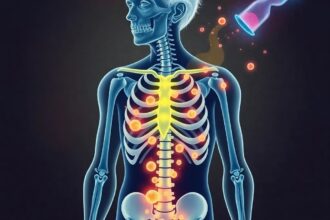Explore how epigenetics impacts aging, with insights on diet, exercise, and stress management influencing gene expression and biological age, backed by expert opinions and recent studies.
Discover how epigenetics reveals the connection between lifestyle choices and aging, offering practical tips to optimize health and extend longevity.
Understanding Epigenetics and Aging
Epigenetics, the study of changes in gene expression without altering the DNA sequence, has revolutionized our understanding of aging. According to Dr. David Sinclair, a professor of genetics at Harvard Medical School, Epigenetics is the software that runs our genetic hardware, and it can be reprogrammed through lifestyle choices.
This concept suggests that while we cannot change our genetic code, we can influence how our genes behave.
Recent research published in the journal Nature Aging highlights the role of epigenetic clocks, which measure biological age by analyzing DNA methylation patterns. These clocks have shown that lifestyle factors such as diet, exercise, and stress management can significantly impact biological aging. For instance, a 2021 study by the University of California, Los Angeles (UCLA) found that participants who adhered to a Mediterranean diet and regular exercise regimen had a biological age up to five years younger than their chronological age.
Lifestyle Choices and Gene Expression
Diet plays a crucial role in epigenetic regulation. Foods rich in polyphenols, such as berries, green tea, and dark chocolate, have been shown to activate genes associated with longevity. Dr. Moshe Szyf, a pioneer in epigenetics research, explains, What we eat doesn’t just fuel our bodies; it communicates with our genes, telling them to turn on or off.
This communication can either promote healthy aging or accelerate it.
Exercise is another powerful modulator of gene expression. A 2020 study published in Cell Metabolism revealed that regular physical activity can reverse age-related changes in DNA methylation, effectively turning back the epigenetic clock. Dr. Steve Horvath, the creator of the Horvath Aging Clock, emphasizes, Exercise is one of the most effective ways to reset your biological age.
Stress Management and Epigenetic Health
Chronic stress is a well-known accelerator of aging, and its effects are mediated through epigenetic mechanisms. Research from the University of California, San Francisco (UCSF) has shown that stress can lead to increased methylation of genes involved in inflammation and immune response, contributing to premature aging. Mindfulness practices such as meditation and yoga have been found to counteract these effects by reducing stress hormones and promoting DNA repair.
Dr. Elizabeth Blackburn, a Nobel laureate in physiology, states, Telomeres, the protective caps at the ends of chromosomes, are directly influenced by stress. Mindfulness practices can lengthen telomeres, effectively slowing down the aging process.
This highlights the importance of mental well-being in maintaining epigenetic health.
Practical Tips for Optimizing Epigenetic Health
To harness the power of epigenetics for longevity, consider the following evidence-based strategies:
- Adopt a nutrient-dense diet rich in fruits, vegetables, whole grains, and healthy fats.
- Engage in regular physical activity, including both aerobic and strength-training exercises.
- Practice stress-reduction techniques such as meditation, deep breathing, or journaling.
- Prioritize sleep, as poor sleep quality has been linked to accelerated epigenetic aging.
- Avoid smoking and excessive alcohol consumption, both of which can negatively impact DNA methylation.
By making these lifestyle changes, you can take control of your epigenetic health and potentially extend your lifespan. As Dr. Sinclair aptly puts it, We are not just passengers on the journey of aging; we are the drivers.




